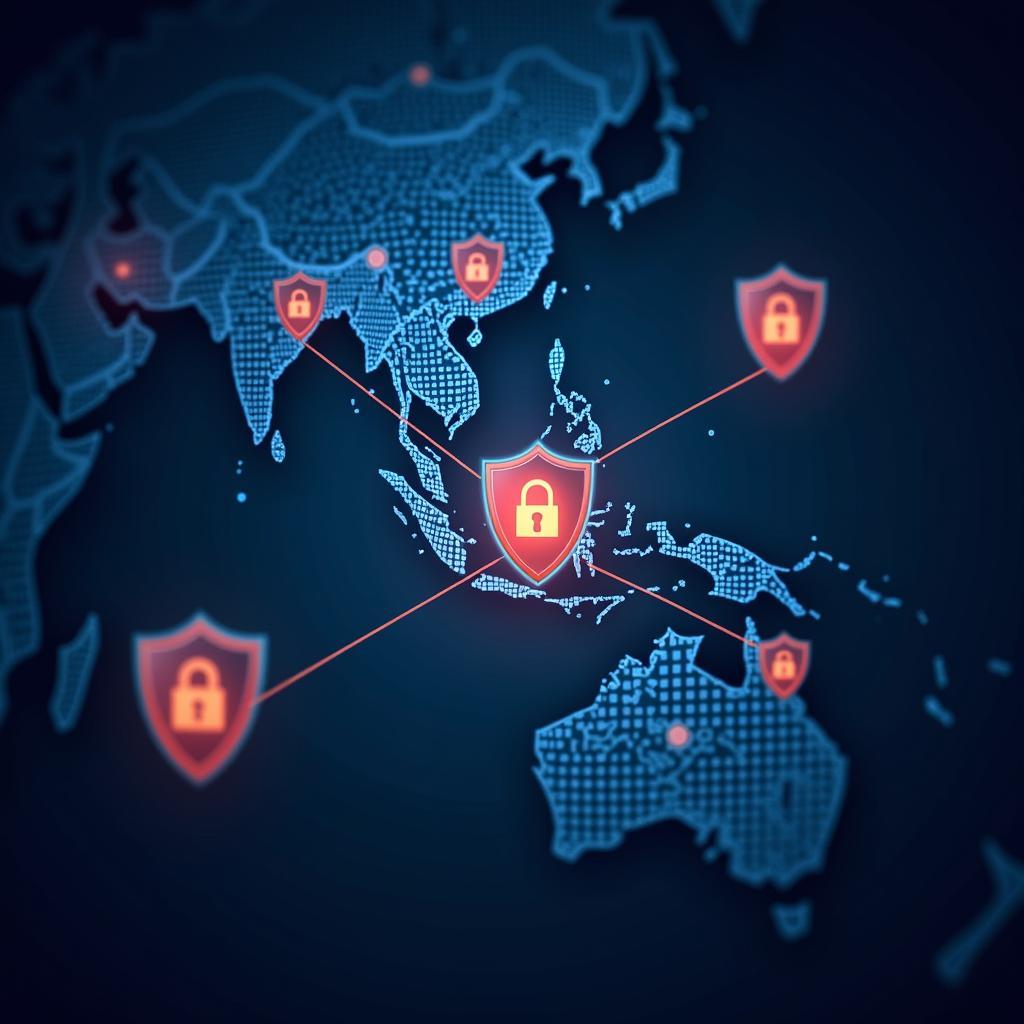The ASEAN region stands at the cusp of a technological revolution with the advent of 5G. This next-generation connectivity technology promises to be far more than just faster internet speeds. It represents a catalyst for profound digital transformation across industries, promising to reshape economies and societies within the ASEAN bloc. This article delves into the transformative potential of Asean 5g, exploring its impact on diverse sectors, the challenges in its implementation, and the opportunities it presents for regional collaboration and growth.
Unlocking the Potential: How 5G is Poised to Reshape ASEAN
The impact of 5G in ASEAN is projected to be felt across a multitude of sectors, driving innovation and efficiency. Here’s a glimpse into how 5G is set to revolutionize key areas:
-
Manufacturing: 5G will power the rise of smart factories, enabling automation, real-time data analytics, and predictive maintenance, significantly boosting productivity and competitiveness.
-
Healthcare: Telemedicine, remote patient monitoring, and AI-powered diagnostics will become commonplace, improving healthcare accessibility and quality, especially in remote areas.
-
Agriculture: Precision farming techniques will be enhanced through real-time data collection, analysis, and automated irrigation systems, leading to increased crop yields and resource optimization.
-
Education: Immersive learning experiences, remote education opportunities, and personalized learning pathways will become increasingly accessible, bridging educational gaps and fostering a knowledge-based society.
-
Finance: Faster transaction speeds, enhanced security, and the rise of FinTech solutions will revolutionize financial services, promoting financial inclusion and economic growth.
Overcoming Challenges: Navigating the Path to 5G Adoption
While the potential of 5G in ASEAN is undeniable, its successful implementation hinges on addressing key challenges:
-
Infrastructure Development: Building robust and widespread 5G infrastructure necessitates significant investments to ensure coverage extends beyond urban centers and reaches underserved communities.
-
Spectrum Allocation: Efficient allocation of the radio frequency spectrum is crucial for optimal 5G performance and requires effective coordination among ASEAN member states.
-
Cybersecurity Concerns: As 5G enables more interconnected devices, ensuring robust cybersecurity measures and data privacy frameworks is paramount to mitigate potential risks.
 ASEAN 5G Cybersecurity Landscape
ASEAN 5G Cybersecurity Landscape
- Digital Skills Gap: Equipping the ASEAN workforce with the necessary digital skills to thrive in a 5G-enabled economy requires targeted education and training programs.
Collaboration is Key: Unlocking the Full Potential of ASEAN 5G
Realizing the transformative potential of 5G in ASEAN necessitates a collaborative approach among member states, the private sector, and international organizations. Key areas for collaboration include:
-
Sharing Best Practices: Exchanging knowledge, expertise, and successful 5G implementation strategies can accelerate adoption and address common challenges.
-
Joint Research and Development: Collaborating on 5G research and development initiatives can foster innovation and create a thriving regional technology ecosystem.
-
Harmonizing Regulations: Aligning regulatory frameworks related to spectrum allocation, cybersecurity, and data privacy can facilitate seamless 5G deployment across borders.
-
Capacity Building: Joint efforts to develop digital skills and literacy programs will empower the ASEAN workforce to harness the opportunities presented by 5G.
ASEAN 5G: A Future of Shared Prosperity and Regional Integration
ase 5g package solutions presentation
The successful deployment of 5G in ASEAN has the potential to unlock unprecedented economic growth, social progress, and regional integration. By embracing a collaborative approach, ASEAN member states can overcome challenges and leverage the transformative power of 5G to create a more connected, innovative, and prosperous future for all.
Frequently Asked Questions (FAQs)
1. What are the key benefits of 5G for businesses in ASEAN?
5G enables businesses to enhance productivity, improve efficiency, and unlock new revenue streams through innovations in automation, data analytics, and customer experiences.
2. How will 5G impact education in remote areas of ASEAN?
5G can bridge educational gaps by facilitating remote learning opportunities, providing access to quality educational resources, and enabling immersive learning experiences.
3. What role can governments play in accelerating 5G adoption in ASEAN?
Governments can foster a conducive environment for 5G by investing in infrastructure, streamlining regulations, incentivizing private sector participation, and promoting digital skills development.
4. What are the potential cybersecurity risks associated with 5G, and how can they be mitigated?
As 5G increases interconnectedness, robust cybersecurity measures, data privacy regulations, and collaborative efforts to address vulnerabilities are crucial to mitigate risks.
5. How can ASEAN ensure inclusive and equitable access to 5G benefits for all segments of society?
Addressing the digital divide, promoting digital literacy programs, and ensuring affordable 5G services are essential to ensure equitable access to 5G’s benefits.
Need Help? Contact Us!
For inquiries or assistance regarding Asean Media and the transformative impact of 5G in the region, please contact our dedicated team:
Phone: 0369020373
Email: aseanmediadirectory@gmail.com
Address: Thon Ngoc Lien, Hiep Hoa, Bac Giang, Vietnam
Our customer support team is available 24/7 to address your needs and provide comprehensive information.
